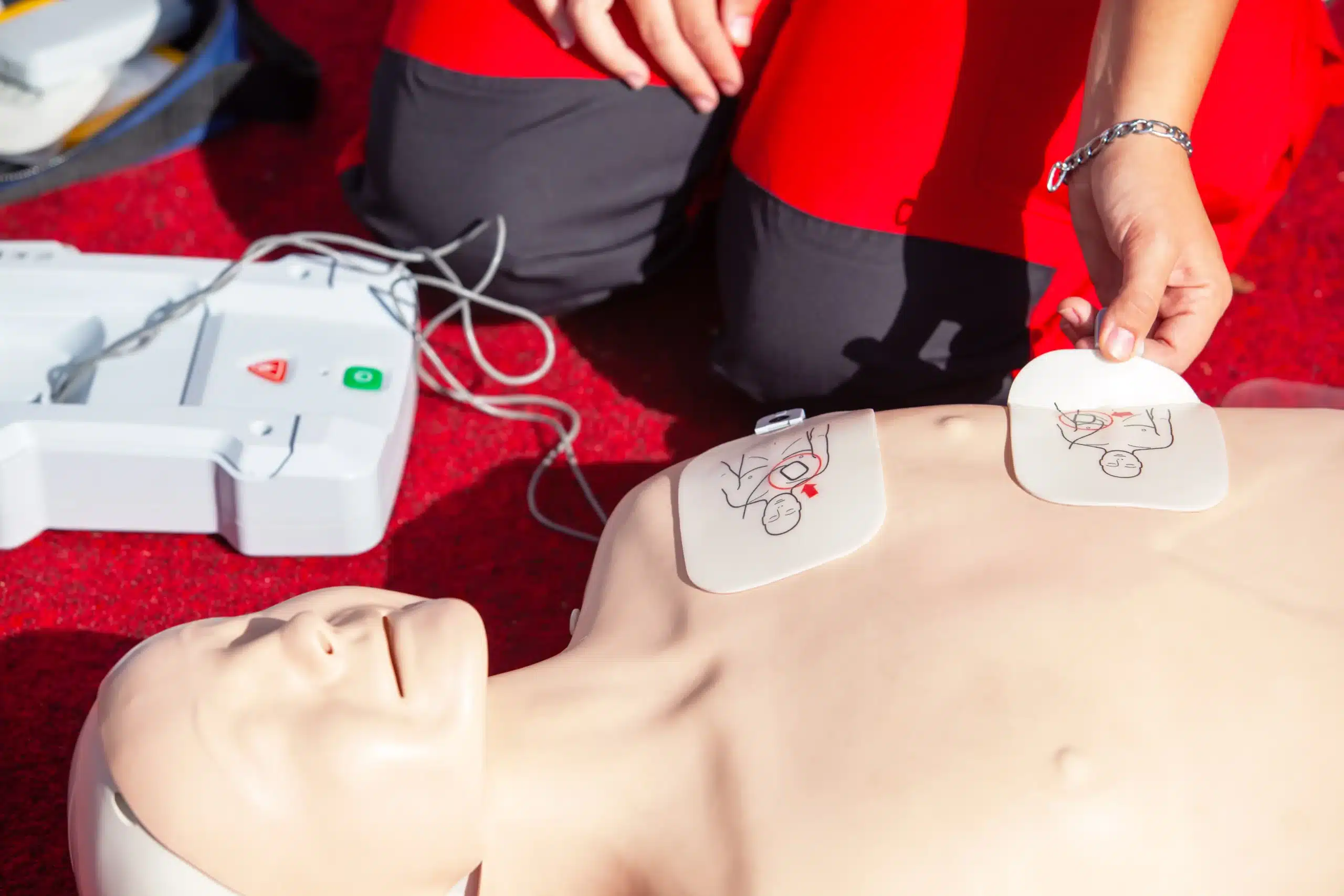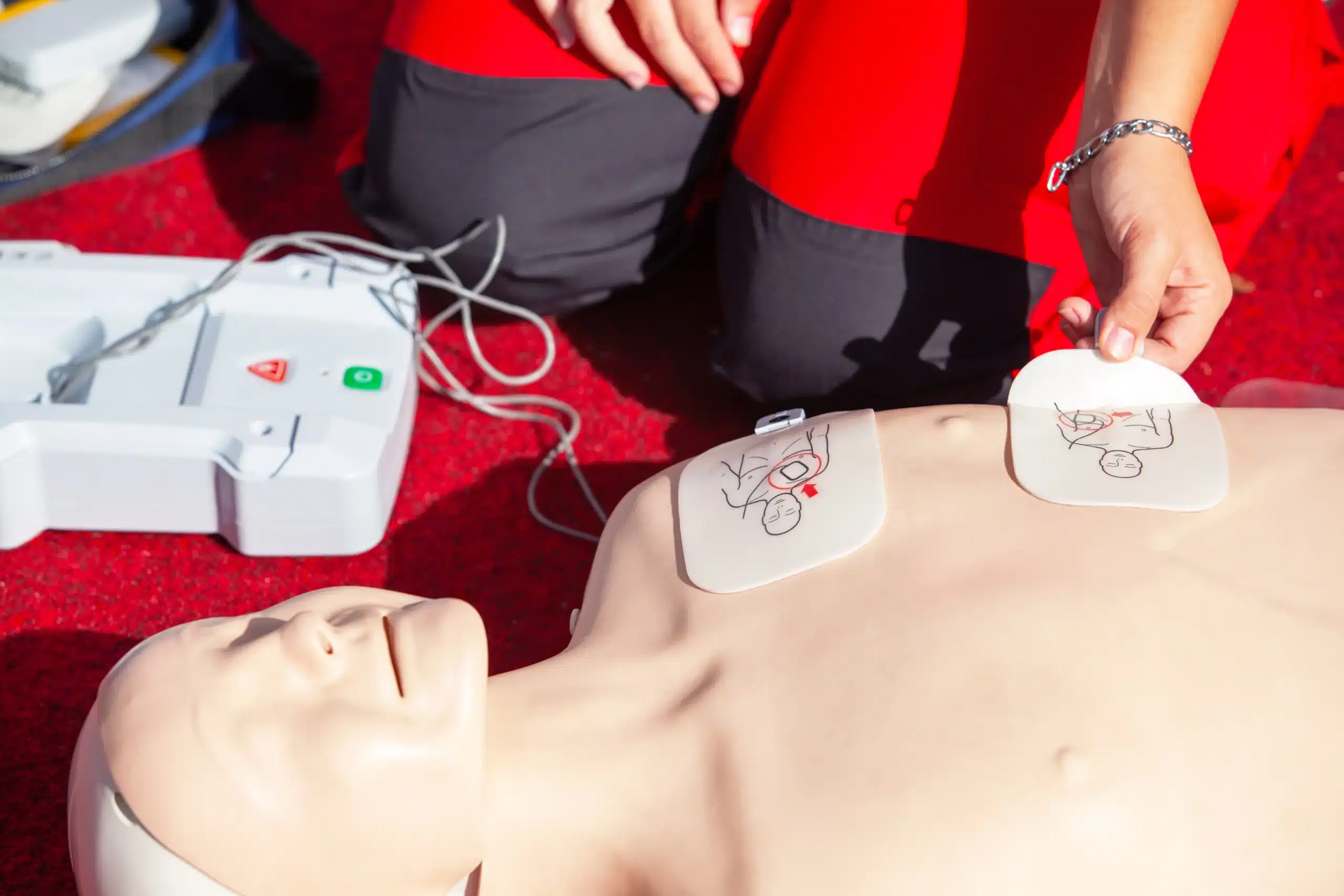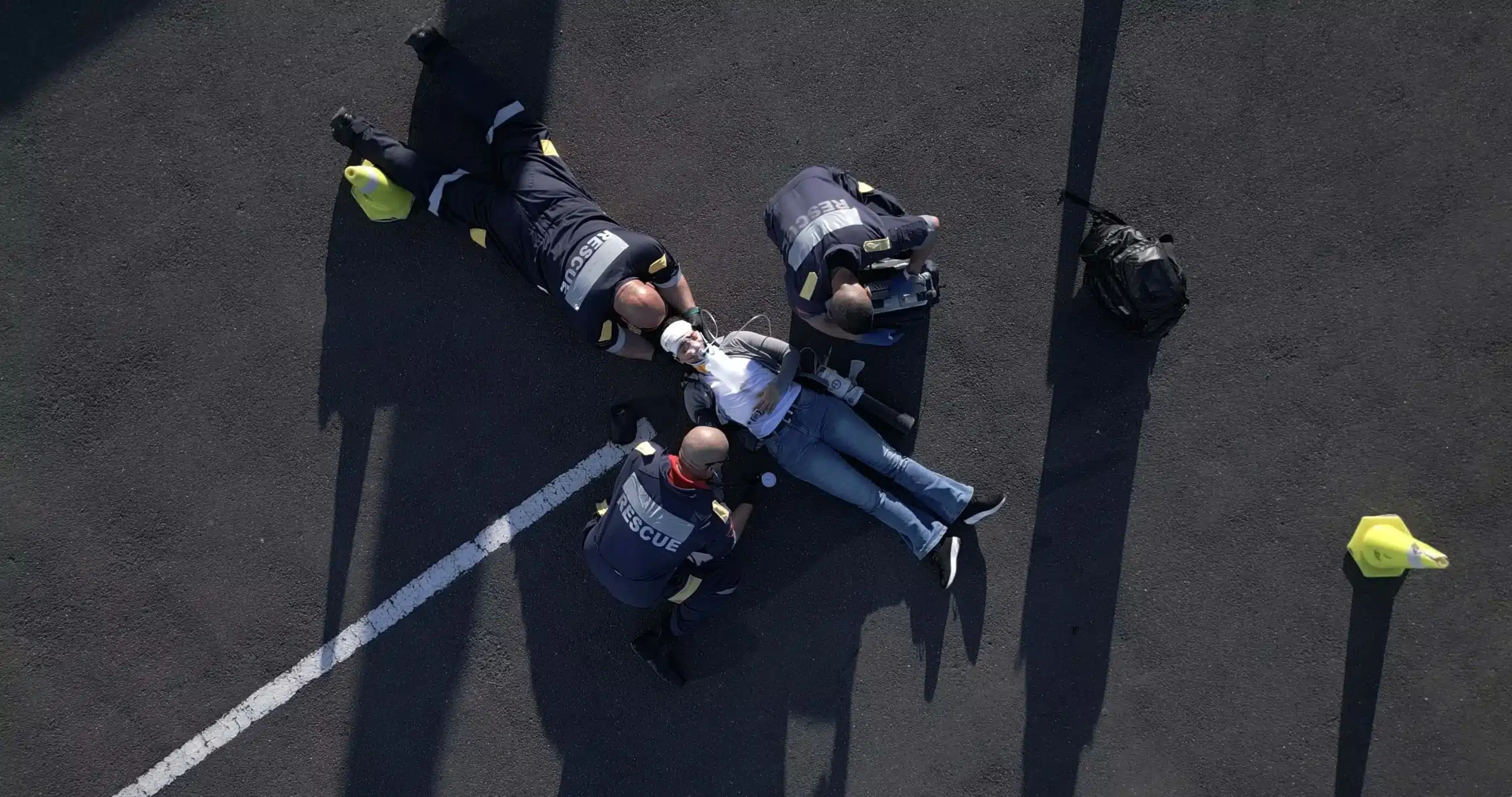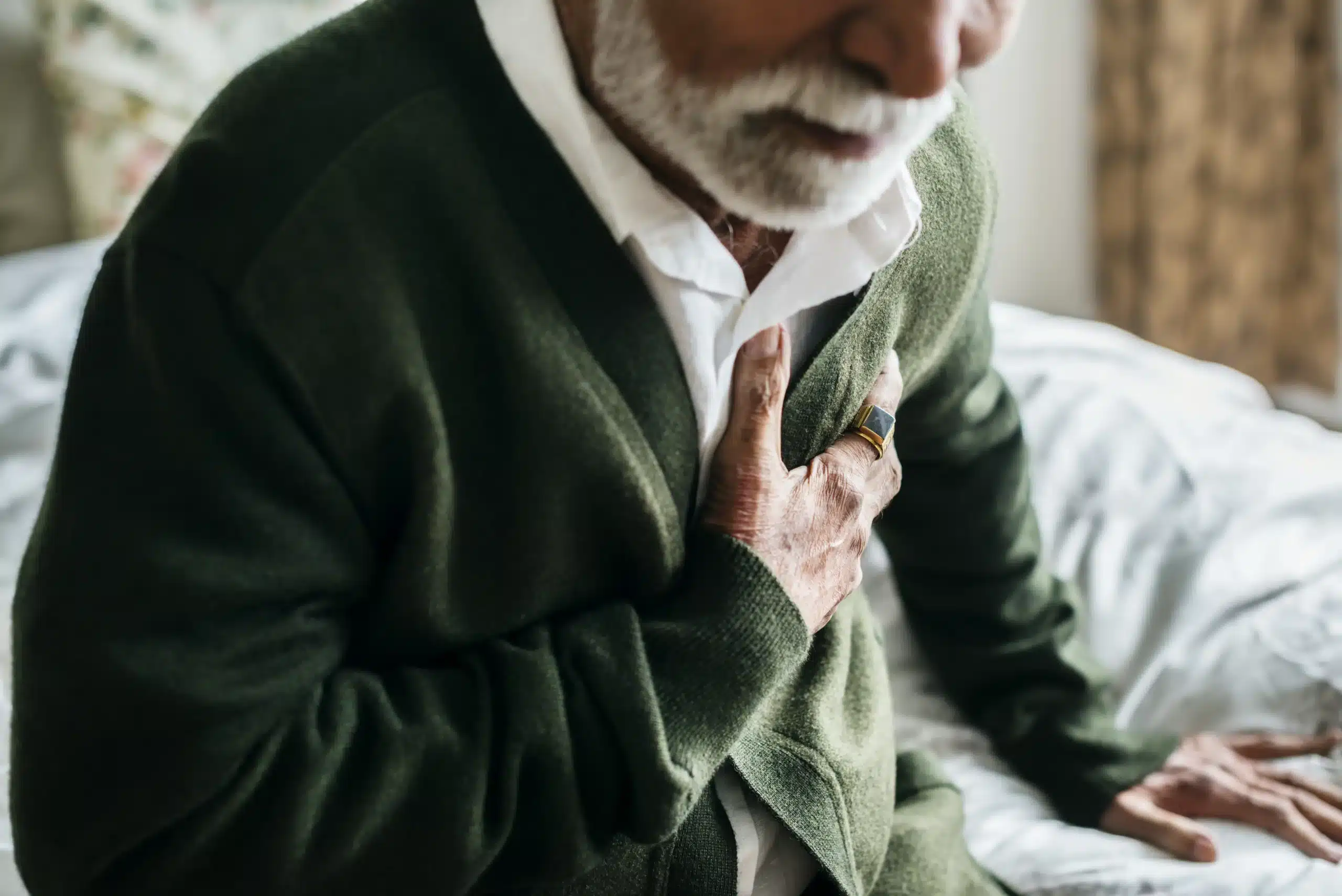Surviving cardiac arrest is nothing short of a miracle. CPR, or cardiopulmonary resuscitation, gives patients a second chance at life, but the recovery process doesn’t end when the heart starts beating again. While most recovery discussions focus on regaining physical strength, the emotional and psychological toll on CPR survivors often goes unnoticed and untreated.
This guide is here to shed light on the psychological recovery for CPR survivors. You’ll learn about the emotional aftermath of resuscitation, coping strategies for survivors and their families, and why addressing mental health is critical for full recovery. By the end, you’ll have practical tips to support someone in their recovery—or yourself if you’ve been through this life-changing event.
What You’ll Learn From This Post
1. The Psychological Impact of CPR Survival
- Immediate emotional responses and Acute Stress Disorder (ASD).
- Long-term conditions like PTSD, depression, and survivor guilt.
- How surviving CPR can change someone’s worldview.
2. Effective Coping Strategies for Survivors and Families
- Mindfulness exercises to reduce anxiety.
- The importance of social support and networking.
- Adjustments in lifestyle to promote holistic recovery.
- Guidance on seeking professional help.
3. Why Psychological Recovery is Crucial
- The connection between emotional health and physical recovery.
- How addressing mental health can improve overall well-being.
Understanding the Psychological Impact of CPR
Immediate Emotional Responses
The trauma of being brought back to life can leave survivors feeling disoriented, anxious, or overwhelmed. Many survivors describe the experience as deeply unsettling, a mix of gratitude and fear as they grapple with what just happened. Confusion about the event is also common, especially when survivors have incomplete or no memory of the arrest.
Acute Stress Disorder (ASD): Some survivors may experience acute stress disorder, characterized by flashbacks, hypervigilance, and difficulty focusing. According to studies published in the Resuscitation Journal, over 61% of cardiac arrest survivors report significant anxiety immediately following resuscitation.
Long-Term Effects on Mental Health
Survivors often deal with lingering psychological conditions that may last for months or even years if untreated. These include:
- Post-Traumatic Stress Disorder (PTSD): Experiencing a near-death event can lead to recurrent nightmares, intrusive thoughts, and avoidance behaviors. Roughly 19–27% of cardiac arrest survivors are diagnosed with PTSD.
- Depression: Survivors may feel a loss of purpose or struggle with accepting a “new normal.” Depression affects an estimated 14–45% of survivors.
- Survivor’s Guilt: A subset of survivors reflect on why they were spared while others may not have been as fortunate, which can lead to guilt and self-blame.
Many survivors also wrestle with existential questions about mortality and the meaning of life post-resuscitation. This shift in worldview is referred to as post-traumatic growth, where survivors strive to live with newfound purpose—but this isn’t always an easy transition.
Coping Strategies for Survivors and Families
Taking the right steps after resuscitation can significantly improve a survivor’s recovery process. Here are recommendations for survivors and their families to help address psychological barriers:
Mindfulness-Based Techniques
Mindfulness exercises can serve as powerful tools for managing stress and staying grounded. These practices encourage survivors to focus on the present rather than getting swept up in traumatic memories or worries:
- Meditation: Spend 5–10 minutes every morning practicing deep breathing. Apps like Calm and Headspace can guide beginners.
- Journaling: Write about your feelings daily, even if they appear messy or contradictory. It’s a healthy outlet for understanding emotions.
- Yoga: Gentle yoga stretches can reduce physical tension while calming the mind.
Simple, daily mindfulness exercises can offer significant relief from anxiety and allow survivors to regain confidence over time.
Support Networks
Healing doesn’t happen in isolation—connections are critical. Family members, friends, and survivor-specific groups can provide much-needed emotional support.
- Family & Friends: Encourage loved ones to have open conversations about emotions and challenges.
- Support Groups: Many organizations like the American Heart Association (AHA) offer online communities for survivors to connect, share stories, and get advice.
- Professional Networks: Reach out to social workers or survivor advocates who specialize in the post-CPR recovery process.
Feeling understood and validated can ease the burden of emotional distress, fostering hope.
Lifestyle Adjustments
Everyday habits play a vital role in both psychological and physical recovery. Survivors should aim to build stable routines that bring a sense of normalcy:
- Physical Activity: Engage in light exercises like walking or swimming to boost endorphins. Always follow the guidance of your physician.
- Nutrition: Focus on eating whole, nutrient-rich meals to support brain and body healing.
- Sleep: Sleep helps regulate mood and energy—make it non-negotiable to get at least 7–8 hours per night.
Consistency in self-care habits provides a strong foundation for recovery and restores balance to daily life.
Seeking Professional Help
Bringing in mental health experts can make a world of difference for trauma recovery. Therapy options such as the following have shown positive outcomes:
- Cognitive Behavioral Therapy (CBT): Helps break cycles of negative thinking patterns.
- Eye Movement Desensitization and Reprocessing (EMDR): Useful for processing traumatic memories.
When searching for a professional, look for experiences in health-related trauma or survivor recovery. The right therapist can provide tailored strategies to tackle challenges specific to post-CPR trauma.
Why Psychological Recovery is Essential
Most survivors focus exclusively on physical rehabilitation, like regaining strength or mobility. However, addressing mental health is equally important to holistic recovery. Research confirms that reducing psychological stress positively influences physical health outcomes, as it decreases cortisol levels and improves overall immune function.
Healing both the body and mind allows survivors to lead fuller, healthier lives. By opening the door to therapy, mindfulness, and supportive networks, survivors can move forward with a sense of empowerment rather than fear.
Take Action Today
Psychological recovery for CPR survivors isn’t an overnight process, but every small step counts. Survivors overcoming trauma demonstrate incredible strength and resilience every single day. If you know someone who has experienced resuscitation, show them compassion, patience, and this article—it could be the encouragement they need.
If you want to make a difference for future survivors, consider gaining CPR certification from trusted providers like the American Heart Association. Safety Training Seminars offers AHA-certified courses in San Leandro, CA, including:
- CPR & First Aid
- Basic Life Support (BLS)
- Advanced Cardiac Life Support (ACLS)
- Pediatric Advanced Life Support (PALS)
Recovery is never linear, but with the right tools, strategies, and support, survivors can create a foundation for lasting mental and physical well-being.






